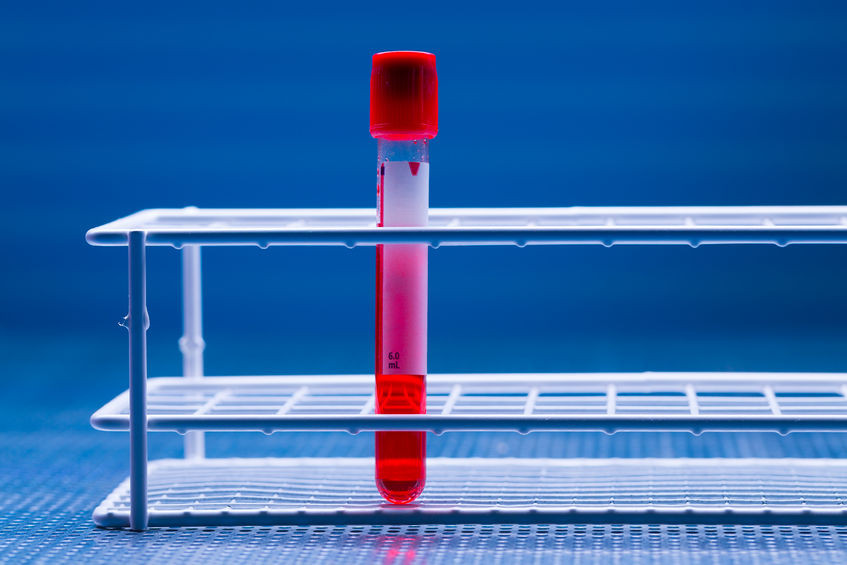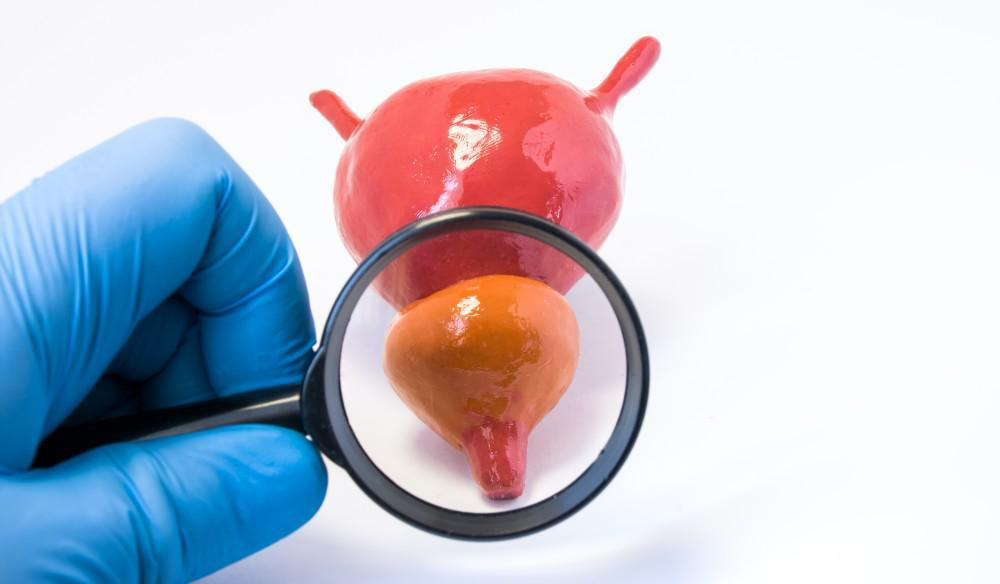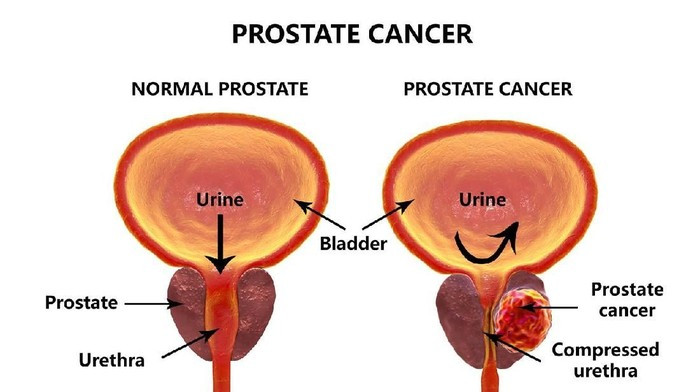Definition
PSA (Prostate-Specific Antigen) is a protein generated by the prostate gland in the male reproductive system. This protein is produced by both healthy prostate glands and those affected by various conditions, including malignancies. PSA is predominantly present in semen but is found in smaller amounts in the blood. Blood PSA is categorized into two forms: PSA bound to proteins and PSA that is unbound or "free." Free PSA refers to the unbound PSA in the blood, while the combined total of free and bound PSA constitutes total PSA.
A PSA test measures PSA levels in the blood to help detect prostate cancer. Both total PSA and free PSA levels can be assessed simultaneously or separately, depending on the doctor's recommendation. A free PSA test is usually ordered when total PSA levels are elevated or unclear. Additionally, it helps evaluate the risk of prostate cancer in patients with high total PSA levels before proceeding with a tissue biopsy.
While the free PSA test is not a definitive diagnostic tool for prostate cancer, it offers certain advantages. These include ease of administration, affordability, rapid results, and a non-invasive nature compared to a biopsy. However, it also has limitations. This test cannot definitively diagnose prostate cancer and predict the prognosis of prostate-related diseases, it does not assess the severity of prostate cancer, and it does not determine the most appropriate treatment. The standard method for confirming a prostate cancer diagnosis remains a prostate tissue biopsy.
Indications
Contraindications
There are no specific conditions that prevent a free PSA test from being conducted. However, certain factors and medications can influence the accuracy of the results. It is essential to inform your doctor if you have any of the following:
- Benign prostate hyperplasia (BPH), a non-cancerous enlargement of the prostate gland.
- Prostate infections or inflammation.
- Recent medical procedures, such as prostate biopsy or surgery.
- Use of certain medications, such as drugs containing testosterone, BPH treatment medications, blood thinners, cholesterol-lowering drugs, herbal supplements, or diuretics.
Preparation Prior to Test
Proper preparation is crucial to obtain reliable free PSA test results. Follow these guidelines:
- Avoid physical activity or strenuous exercise before the test.
- Refrain from cycling prior to the examination.
- Abstain from sexual activity and ejaculation for at least two days before the test.
- If you have undergone a biopsy, wait at least six weeks before performing a total or free PSA test.
Test Procedure
Free PSA testing can be conducted in hospitals or private laboratories offering this service. It is often performed alongside a total PSA test to calculate the free PSA level in the blood.
The procedure involves blood sample collection, carried out by a laboratory staff or healthcare practitioner, The staff identifies a suitable vein, typically in the arm. The area is cleaned with a disinfectant such as an alcohol swab to prevent contamination. Subsequently, a syringe is inserted to draw blood, which is collected into a tube. After the syringe is taken, the blood sample is sent to a laboratory, where specialized equipment measures the free PSA value.
Normal and Abnormal Values
There is no universally defined threshold for normal or abnormal free PSA levels because PSA levels can be influenced by factors such as age, other medical conditions, and medication use. The free PSA value is expressed as a percentage, calculated by comparing the amount of free PSA to the total PSA in the blood. The percentage correlates with the likelihood of prostate cancer:
| Percentage of Free PSA | Percentage of Prostate Cancer Risk |
|
0-10% |
56% |
|
10%-15% |
28% |
|
15%-20% |
20% |
|
20%-25% |
16% |
|
>25% |
8% |
Table 1: Percentage of Free PSA and Percentage of Prostate Cancer Risk
Based on the table, lower free PSA percentage (<10%) may indicate a higher likelihood of prostate cancer, the risk is significantly high at 56%. When the free PSA value is between 10% and 15%, the risk lowers to approximately 28%. A free PSA percentage within the range of 15% to 20% lowers the prostate cancer risk to 20%. If the percentage of free PSA falls between 20% and 25%, the risk is even lower, at 16%. For free PSA percentages exceeding 25%, the risk of prostate cancer is minimal, around 8%.
It is essential to discuss these results with your doctor, who can interpret them in the context of other medical findings and recommend additional diagnostic tests if necessary.
Results and Recommendations (Follow-up Tests)
If you undergo a free PSA test and the results show a low free PSA percentage, specifically below 10%, your risk of developing prostate cancer is significantly higher. However, it is important to note that the free PSA test alone cannot provide a definitive diagnosis of prostate cancer.
The doctor will evaluate your free PSA test results alongside a prior physical examination, specifically a digital rectal test. If the digital rectal test reveals signs such as an enlarged prostate that feels hard, dense, lumpy, uneven, or painful, the likelihood of prostate cancer increases. Nevertheless, neither the digital rectal test nor the free PSA test can definitively diagnose prostate cancer.
To confirm the diagnosis, the doctor will recommend further tests, most notably a prostate tissue biopsy. A biopsy is the standard and definitive test for diagnosing prostate cancer. During this procedure, a small sample of prostate tissue is taken and analyzed under a microscope to detect cancer cells. In addition to a biopsy, other tests that may assist in diagnosing prostate cancer include PSA density analysis and Magnetic Resonance Imaging (MRI). However, the tissue biopsy remains the gold standard for confirmation.
Consult the Right Doctor
You should promptly consult a urologist or surgeon with the results of your free PSA test to determine whether your condition poses a risk of prostate cancer or is within normal limits. The doctor will analyze your free PSA test results in conjunction with your medical history, symptoms, and findings from the physical test. Based on these evaluations, the doctor will determine whether further tests are necessary and suggest appropriate therapy or interventions tailored to your medical condition.
Looking for more information about laboratory, radiology, and other examination results? Click here!
- dr Anita Larasati Priyono
David, MK., & Leslie, SW. (2021). Prostate Specific Antigen (p. A single page). StatPearls Publishing.
Moris, SY. (2018). What’s Free PSA and How Is It Used to Diagnose Prostate Cancer. Healtline. Retrieved 19 May 2022, from https://www.healthline.com/health/prostate-cancer-free-psa.
Bandukwala, NQ. (2020). Low Free PSA Levels and Prostate Cancer. WebMD. Retrieved 19 May 2022, from https://www.webmd.com/men/low-free-psa-level.
Johnson, J. (2021). What is a free PSA test, and what is it for?. MedicalNewsToday. Retrieved 19 May 2022, from https://www.medicalnewstoday.com/articles/322001#other-tests.
Prostate-Specific Antigen (PSA) Test. Canadian Cancer Society (2022). Retrieved 16 May 2022, from https://cancer.ca/en/treatments/tests-and-procedures/prostate-specific-antigen-psa-test.
Prostate-Specific Antigen or PSA. UrologyAustin. Retrieved 19 May 2022, from https://urologyaustin.com/male-urology/prostate-specific-antigen/.





/630202c801fcd.jpg)





